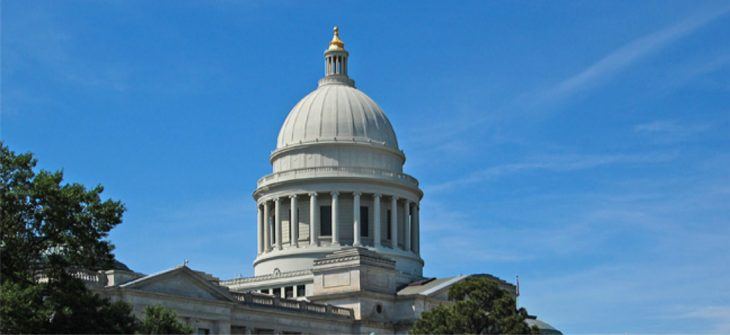Proposed bill would limit documents available under Arkansas Freedom of Information Act
by September 7, 2023 9:12 pm 5,950 views

Arkansas legislators may soon consider legislation that would significantly limit the information Arkansans can obtain through the Freedom of Information Act (FOIA) about the deliberations of officials at state agencies, recommendations about policy, and other governance matters.
The Arkansas FOIA, initially approved during the term of Gov. Winthrop Rockefeller (R), is considered one of the best “sunshine” laws in the nation. The proposed legislation, pushed at the behest of Gov. Sarah Sanders, would weaken the FOIA. The proposed bill obtained by Talk Business & Politics, which was circulated broadly among journalists and FOIA advocates, is a draft and may not fully reflect the legislation expected to be filed by Rep. David Ray, R-Maumelle. (Link here for a PDF of the proposed bill.)
Gov. Sanders is expected to announce the Special Session at a Friday morning press conference.
The proposed law also would effectively make it more difficult for an attorney or individual winning a claim for a FOIA violation to recover attorney fees and other reasonable expenses.
Following is a section of the proposed law, edited to remove page numbers and section numbers.
“Arkansas Code § 25-19-105(b), concerning specific exemptions to the requirements under the Freedom of Information Act of 1967, is amended to add additional subdivisions to read as follows:
• Records that reflect the planning or provision of security services provided to the Governor, the Lieutenant Governor, the Attorney General, the Secretary of State, the Auditor of State, the Treasurer of State, the Commissioner of State Lands, members of the General Assembly, Justices of the Supreme Court, or Judges of the Court of Appeals;
• Records revealing the deliberative process of state agencies, boards, or commissions, including:
Executive branch state agency inter-agency and intra-agency memoranda or letters that would not be available by law to a party other than in the course of litigation; and
Inter-agency and intra-agency memoranda and letters, including Communications and documents reflecting advisory opinions; Recommendations; and Deliberations that comprise part of the process by which governmental decisions and policies are formulated;”
Republican officials, including Arkansas Attorney General Tim Griffin, have made attempts to make changes to the FOIA. Griffin created a task force to consider ways to better “balance” the law with modern realities. That group is expected to meet for the first time on Friday.
“The last time FOIA was modernized, the iPhone hadn’t been invented yet. Since then, the use of digital records and new communications technology has increased exponentially, making it possible for public entities to create and retain more records than ever before, making responding to FOIA requests more complex and increasing the amount of FOIA requests being lodged with public entities,” Griffin said in a statement when announcing the task force.
The proposed bill would also exempt from FOIA any records about “planning or provision of security services provided to the Governor, the Lieutenant Governor, the Attorney General, the Secretary of State, the Auditor of State, the Treasurer of State, the Commissioner of State Lands, members of the General Assembly, Justices of the Supreme Court, or Judges of the Court of Appeals;”
Gov. Sanders and the Arkansas State Police (ASP) have been the target of several FOIA requests from Little Rock attorney Matt Campbell about her travels and expenditures related to her travels and those of her husband, Bryan. When the ASP did not fully comply with Campbell’s request, he filed a lawsuit in the Pulaski County Circuit Court in which he alleges a “denial of the rights guaranteed under the Arkansas Freedom of Information Act.”
The draft legislation also has a “retroactivity clause” that would qualify new exemptions to FOIA for requests dating back to Jan. 1, 2022.
Rep. Ray will be a guest on this week’s Capitol View TV program to discuss the legislation and potential tax cuts. Also, Sonny Albarado, editor-in-chief of Arkansas Advocate and a member of the Arkansas FOIA Task Force, will offer his viewpoints on the bill.
